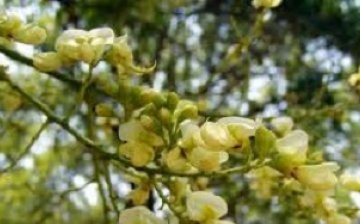Contraindications to Japanese Sophora
Sophora Japanese was brought to our region from Japan and China. In appearance, this tree resembles our acacia. In our country, Japanese Sophora is grown not only as an ornamental tree, but is also a valuable medicine, since the fruits and flowers of Japanese Sophora contain quite a lot of biologically active substances.
Despite the rich useful composition of the plant, there are still contraindications to the Japanese Sophora.
The fruits and flowers of the Japanese sophora contain rutin, which has the property of reducing the permeability and fragility of capillaries and at the same time contributes to a better absorption of vitamin C. It should be noted that only the flowers of the plant contain 25% rutin.
Sophora Japanese for therapeutic and prophylactic purposes is used in the form of various infusions in the following cases:
-
Deficiency of rutin in the body,
-
Radiation sickness,
-
Tendency to bleeding of various kinds,
-
Rheumatism,
-
Hypertension,
-
Retinal hemorrhage,
-
Disruption of the metabolic process,
-
Allergy,
-
Some childhood infections
-
Inflammation of the large intestine, etc.
Compresses from Japanese Sophora are good for fighting purulent inflammatory processes. The plant is also used for the local treatment of seborrheic alopecia.
Compared to the list of diseases in which the infusions of this medicinal plant help, there are fewer contraindications to Japanese Sophora:
-
The period of pregnancy and breastfeeding,
-
Individual plant intolerance.
In some cases, after taking the infusion from Japanese Sophora, there was a disruption in the functioning of the gastrointestinal tract.



